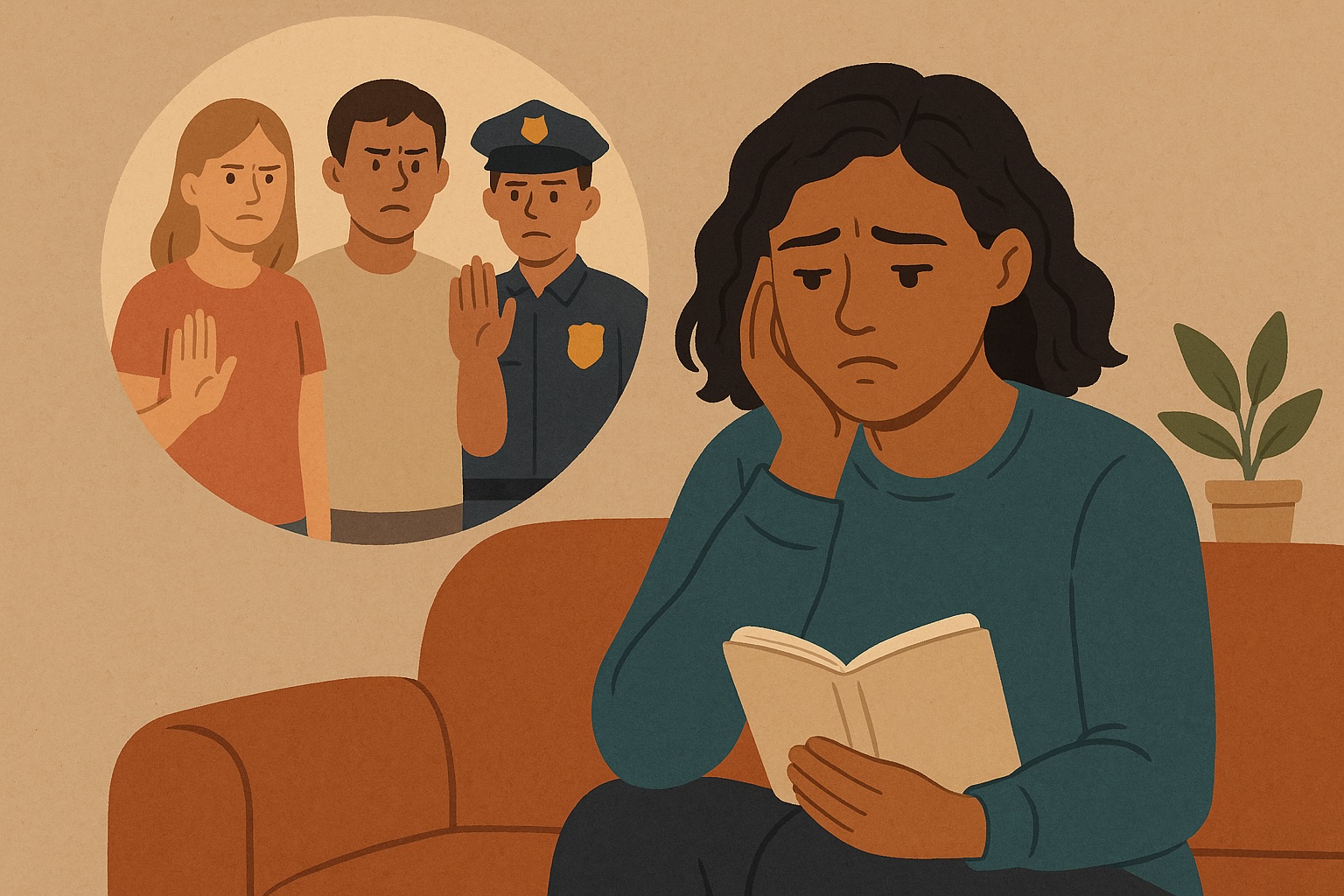When Support Systems Fail: A Survivor's Guide to Finding Help
Learn what to do when friends, family, or authorities don't believe or help. This guide offers strategies for finding alternative support and practicing self-advocacy after being let down.

When a person experiences sexual assault or abuse, the first people they turn to for support are often those they trust most: family, friends, or even authorities. When those systems fail—when they are disbelieved, blamed, or simply ignored—it can feel like a second trauma. The emotional pain of this rejection can be profound, but it is critical to remember that their experience is valid, and their journey to healing does not have to end there.
This guide explores the challenges of a failed support system and provides strategies for finding alternative help and practicing self-advocacy.
1. The Emotional Fallout of Being Let Down
The initial reaction to a failed support system can be one of deep confusion, shame, and isolation. It’s natural to feel hurt or angry. Acknowledge these feelings without letting them define your truth. The fact that someone else couldn’t or wouldn’t believe you does not negate what you experienced. Your reality is not dependent on their validation.
You Are Not Alone: This happens more often than you think. Many survivors face skepticism and disbelief, even from loved ones.
Set Boundaries: It is okay to create distance from people who are not supportive. You do not owe them an explanation or a continued relationship. Your safety and well-being come first.
2. Finding Alternative Support
While the support systems you expected may have failed, there are countless people and organizations dedicated to helping survivors. These alternative resources are often trained to handle sensitive situations and can offer the understanding that you need.
Advocacy Groups and Hotlines: These organizations are staffed by trained professionals who can offer confidential emotional support and help you find local resources. You can call them to simply talk or to get practical advice.
RAINN (Rape, Abuse & Incest National Network) at 1-800-656-HOPE
The National Domestic Violence Hotline at 1-800-799-7233
Online Communities: Moderated forums and online support groups can connect you with other survivors who have faced similar experiences. These communities can provide a sense of belonging and validation, reminding you that you are not alone.
Legal Clinics & Pro Bono Services: If your goal is legal action, many law schools and non-profit organizations offer free or low-cost legal advice. They can help you understand your rights and options.
Trauma-Informed Therapists: A therapist specializing in trauma can provide a safe, confidential space to process what happened. They are trained to validate your feelings and help you develop healthy coping mechanisms.
3. Self-Advocacy Strategies
Even without external support, you can still advocate for yourself. These strategies empower you to take control of your healing journey.
Document Everything: Create a personal, private record of what happened. Include dates, times, and details. This can be for your own sense of clarity or for potential future legal action. Store this information securely.
Focus on Your Healing: Prioritize your physical and mental health. This might mean finding a therapist, practicing mindfulness, or pursuing hobbies that bring you peace. Your healing is the most important part of this process.
Redefine "Support": Look for support in unexpected places, such as a trusted co-worker, a kind neighbor, or a pet. Support can come from small acts of kindness, and every bit of it matters.
Your truth is your own. Even when support systems fail, you have the power to seek out the help you deserve and continue on your path to healing.
